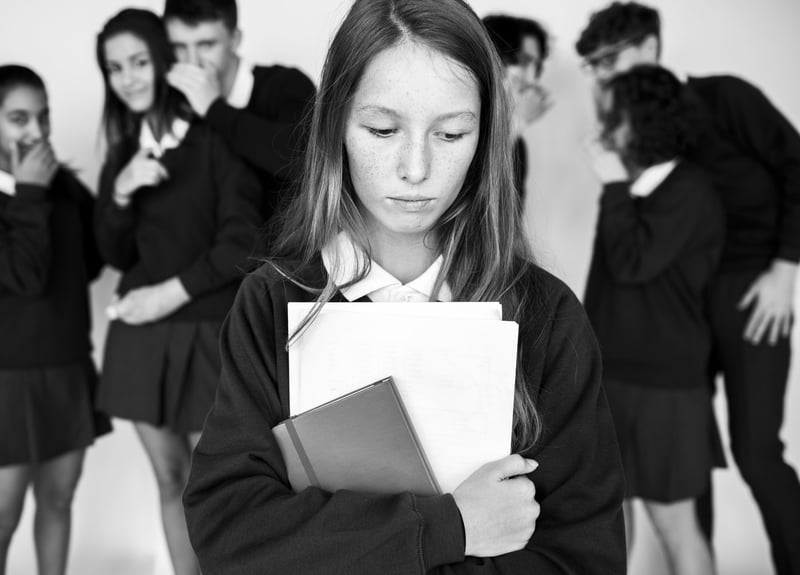
In last week's blog, What to Do When Your Child Says They're Bullied, we looked at ways parents could support and help their children when they claim to be victims of bullying. But often the problem extends way beyond the bullies themselves to the bystanders who aggravate the situation through collusion or inaction.
Bystanders are those who laugh along or lie to protect their friends, the silent witnesses who watch the abuse but do nothing, the gossips who spread rumours, the go-betweens who pass on messages between bully and victim and the faceless collaborators who "like" mean and abusive posts on social media.
Most of the time, they don't think they're doing anything wrong - they're simply 'staying out of trouble', 'not getting involved' or 'just having a laugh'. But passivity and complicity make bullying snowball out of all proportion, causing the victim even greater psychological damage. Incidents stay unreported, rumours get exaggerated, teasing proliferates.
It's difficult for parents to know how they can intervene in such situations, as most of this behaviour happens out of sight, away from the home but here are some ways parents can make a difference:
Set a good example
Don't make fun of other people - particularly other children. Laughing at other people's expense is a trait kids pick up at home. If we chortle at other people's size, clothing or mannerisms, we are teaching our children that it's okay to do so. We need to model kind behaviour and empathy.Question gossip
When our kids tell us the latest school rumours and stories, ask them how they know. Did they witness it personally? Did they hear it on the 'grapevine'? Encourage them to question the veracity of school gossip themselves and not to accept other people's tittle tattle without investigation. In our age of 'false news', this is a good skill to learn! (See our blog: Discerning the Truth in a Digital Age)Talk to other parents and children
Not just to have a good gossip yourself! Getting to know your children's peers and their parents gives you greater insight into peer-level dynamics and what might be happening in the playground.Encourage your kids to stand up for others
This might include:- telling an adult they trust;
- joining forces with others - teaming up with other kids to stand against bullies and offer support to victims;
- looking out for new kids or those who are left out, inviting them to join in;
- telling bullies to stop;
- not laughing at others or joining in with teasing.
Keep electronic devices out of the bedroom
Don't snoop on your children but make sure they're using their laptops, tablets and smart phones in a place where you can see them. At the very least, get them to check them in with you before they go to bed. (See our blog: Do You Know What Your Kids Do Online?)Speak to the school
Be upstanding yourself. If you witness bullying at school-pick up, are aware of reputation-slurring campaigns circulating round the classroom or uncover cyberbullying when you are online, be sure to speak to your child's school about it so that they can investigate and nip it in the bud.
"Speak up for those who cannot speak for themselves"
- Proverbs 31: 8
"Defend the oppressed"
- Isaiah 1: 17
Don't be a bystander, be an upstander










